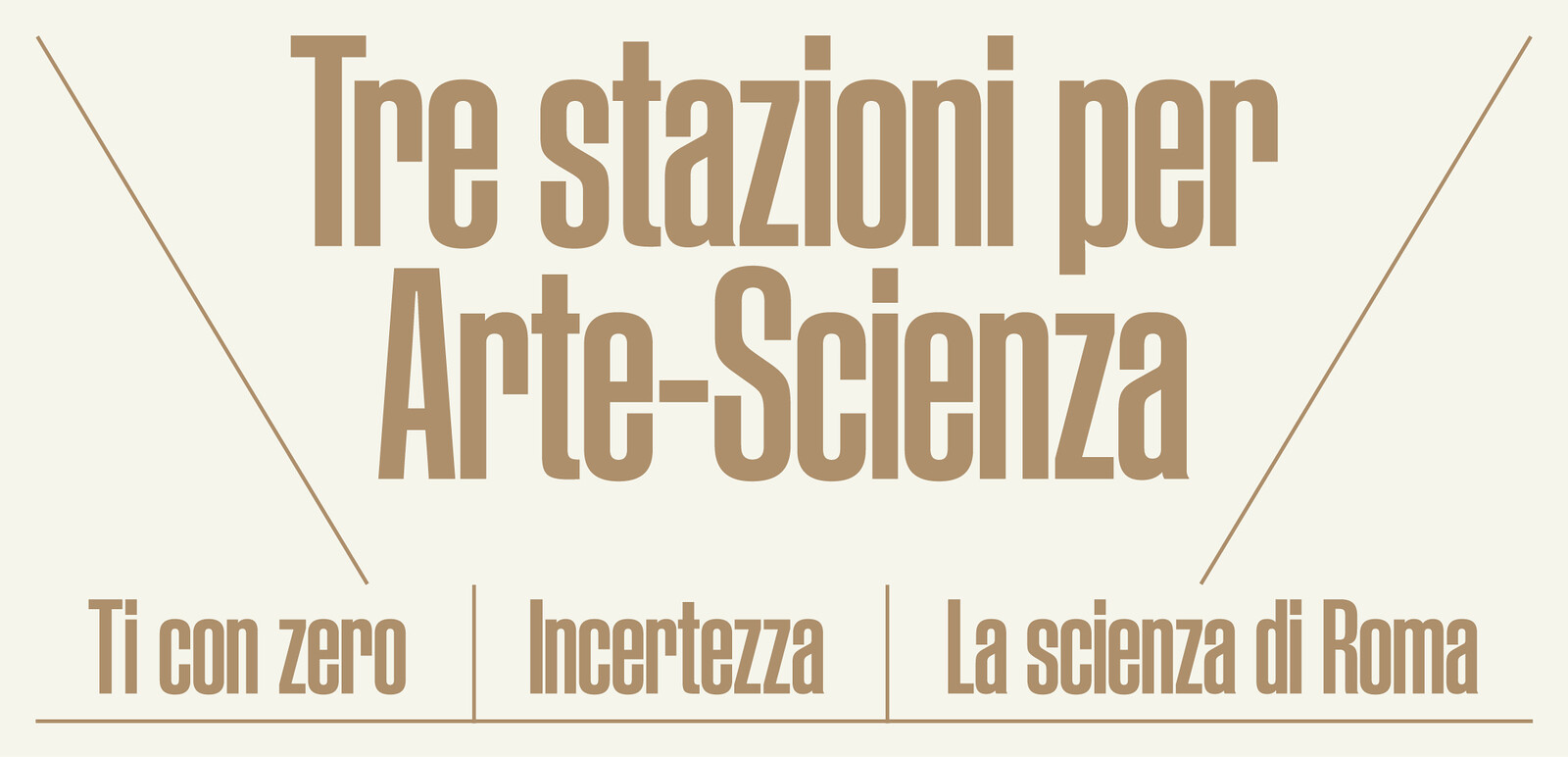October 12, 2021–February 27, 2022
via Nazionale 194
Rome
Italy
From October 12, 2021 to February 27, 2022, the Palazzo delle Esposizioni will be hosting Three Stations for Art-Science. This ambitious, comprehensive project exploring the interaction between art, science and society and occupying two whole floors in the Palazzo delle Esposizioni, is divided into three different exhibitions:
T zero, curated by Paola Bonani, Francesca Rachele Oppedisano and Laura Perrone,
Uncertainty: Interpreting the present, foreseeing the future, curated by the INFN Istituto Nazionale di Fisica Nucleare, Vincenzo Barone, Fernando Ferroni, Vincenzo Napolano and Antonella Varaschin,
The Science of Rome: A city’s past, present and future, curated by Fabrizio Rufo and Stefano Papi and produced with the patronage of the Accademia Nazionale dei Lincei and of Sapienza Università di Roma. Dividing the theme into three exhibitions means that it can be addressed from three different viewpoints: contemporary art (T zero); the most recent discoveres of physics and scientific research (Uncertainty); and history (The Science of Rome).
With Three Stations for Art-Science, the Palazzo delle Esposizioni sets out to illustrate the possibility that different methods and demands may determine not just points of contact but new territories for experience, training, growth and reflection. The journey begins metaphorically with the idea of a “station” precisely because of the paradigmatical nature of the station’s transformation from the movement-cum-progress of the 19th century station, a place for meeting and socialising, via research stations where scientists stopped to conduct observations and experiments, to space stations, mankind’s technological outpost in the cosmos, and to contemporary forms of “stasis” such as quarantine, working from home and so forth.
This transformation provides proof, if any were needed, of the fact that knowledge cannot be based either on certainties or on the division of disciplines, but it can be kept within the dimension of research which is a moving, potential, uncertain and free space where science and art meet up. Inspired by this thought, the Palazzo delle Esposizioni’s Rotunda will be hosting dialogues and screenings in which the themes of the individual exhibition projects converge: conferences, lectures, performances and the exhibits on display will establish new timeframes of knowledge accessibility.
Making these barriers “porous” goes hand in hand with another goal, which is to transform the very notion of “exhibition” by moving towards an experience capable of combining the display aspect with the educational one.
Thanks precisely to this juxtaposition, the project aims to issue a challenge to its audience, urging it to play an active part in the event.
To further bolster the stringency of the dialogue between contemporary artists, topical scientific experiments and a historical awareness of the role Rome has played in research, the visual layout of the entire “machinery” of Three Stations for Art-Science has been placed in the capable hands of a two-man artist and designer team called Formafantasma.
The research of the thirty artists involved in the T zero exhibition is configured as a venue for debate, for discarding or overturning the themes and paradigms of our contemporary world: profiling and automation, the frontiers of medical genetics, global warming, ecological reconversion, forecasting models and spillover.
The goal (and the strongpoint) of The Science of Rome is to illustrate the history of scientific ideas and their impact on society through the great scientists who have worked in Rome and the major discoveries that have been made here.
Uncertainty: Interpreting the present, foreseeing the future sets out to illustrate some of the many facets of the notion of uncertainty and the ways in which science deals with it.
And our awareness of the unavoidability of uncertainty triggers a need to rethink and to optimise the ideas and tools that allow us to understand and to govern it, calling on science, art and culture at every level to assist us.



